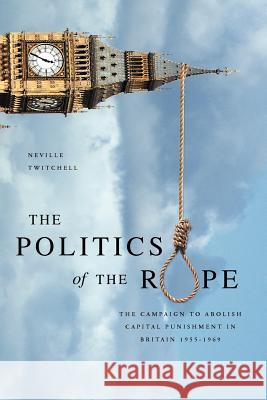The Politics of the Rope » książka
The Politics of the Rope
ISBN-13: 9781906791988 / Angielski / Inna / 2012 / 416 str.
This illuminating broad-based political and cultural study presents the definitive account of the campaign to abolish capital punishment in the period 1955-69. It comprises a work of contemporary history exploring the theme from a number of angles, both pro and contra, which have not been covered so extensively before. From the sphere of governmental and parliamentary politics, to the relevant pressure groups, to the role of the mass media, to the significance of the different churches, and the influence of professional bodies, such as those representing the police and prison officers, the book skilfully identifies their interaction with one another. It examines the effect on the campaign of fluctuations in public opinion, and of controversial murder cases such as those of Timothy Evans, Derek Bentley, Ruth Ellis and James Hanratty, which in turn often informed the state of public opinion The work sets the campaign in the context of the social and cultural ferment of the era (the advent of the permissive society), and contrasts the fortunes of the movement with those of other "conscience issues," such as the legalisation of abortion, homosexual law reform, divorce liberalisation and the abolition of theatre censorship. It seeks to account for the success of the campaign within a relatively short time span in the face of intense public antipathy and a concerted effort by various elements of the establishment to thwart its fulfilment. It asks why the campaign succeeded when so many others facing lesser institutional obstacles failed, and it asks why it succeeded when it did and in the way it did, and considers whether the success of the campaign can be accounted for by the Zeitgeist. On one level it is a study of the politics of social reform, but at a deeper level it is a study of the way in which social trends feed through into political action at the parliamentary level, and illustrates the process of policy formation in the area of private members legislation and free votes where "party" has voluntarily taken a back seat.











